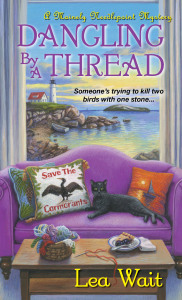Write What You Want To Know
One of the basic rules for authors is to “write what you know.”
That rule makes sense. I often write about the State of Maine, which I know and love. In my Shadows Antique Print Mystery series my protagonist, Maggie Summer, is an antique dealer, as I was for more than thirty years. In the latest in that series (Shadows on a Morning in Maine,), Maggie, a single adult, adopts an older child – something I did four times.
So – yes – I’ve written what I know.
But I’ve also written about a lot of things I wanted to know.
I asked myself … what if ….
Parents of a man who’d watched their son die of AIDS decided it would be a mercy to kill others with that disease so they would avoid suffering? (Shadows at the Fair)
An elderly woman with Alzheimer’s started talking about the secrets she’d kept for the past eighty years? (Shadows on a Maine Christmas)
A family that defined itself as descendants of a famous artist discovers an 1890 diary that tears that assumption apart? (Shadows of a Down East Summer)
A woman disappears when her daughter is ten, leaving the girl to believe she’s been deserted. And then, seventeen years later, the mother’s body is found? (Twisted Threads)
A traveling girl spiritualist draws crowds during the first two weeks of the Civil War, and then the two teenage boys who publish the local newspaper decide to prove she’s a fake? (Uncertain Glory)
A boy loses his leg in an 1819 farm accident, but refuses to accept that his life is over? (Wintering Well)
And, in my latest book, Dangling by a Thread, what if a man isolates himself on an island off the coast of Maine that has no water, electricity or heat … and refuses to leave?
For all these books, research and imagination were key ingredients to creating credible characters and plots.
The idea for Jesse Lockhart, the hermit in Dangling by a Thread, came from a man I’d seen when I was ten years old. Townspeople called him “The  Character.” I didn’t know his real name until decades later. Like Jesse, he lived on an isolated island off the coast of Maine. Like Jesse, he rowed into town occasionally for food and other supplies. I never knew that man’s story – but, at ten years old, when I first saw him, I imagined what it might be.
Character.” I didn’t know his real name until decades later. Like Jesse, he lived on an isolated island off the coast of Maine. Like Jesse, he rowed into town occasionally for food and other supplies. I never knew that man’s story – but, at ten years old, when I first saw him, I imagined what it might be.
And when I imaged Jesse Lockhart, I gave him reasons – reasons to choose to be alone, and reasons to isolate himself on an island.
Jesse is a fictional character and, no, I don’t know what it’s like to live alone without modern conveniences. But I knew people had done it … still do, in some places. Imagination plus research created Jesse.
My readers will let me know whether I succeeded in bringing him to life.




